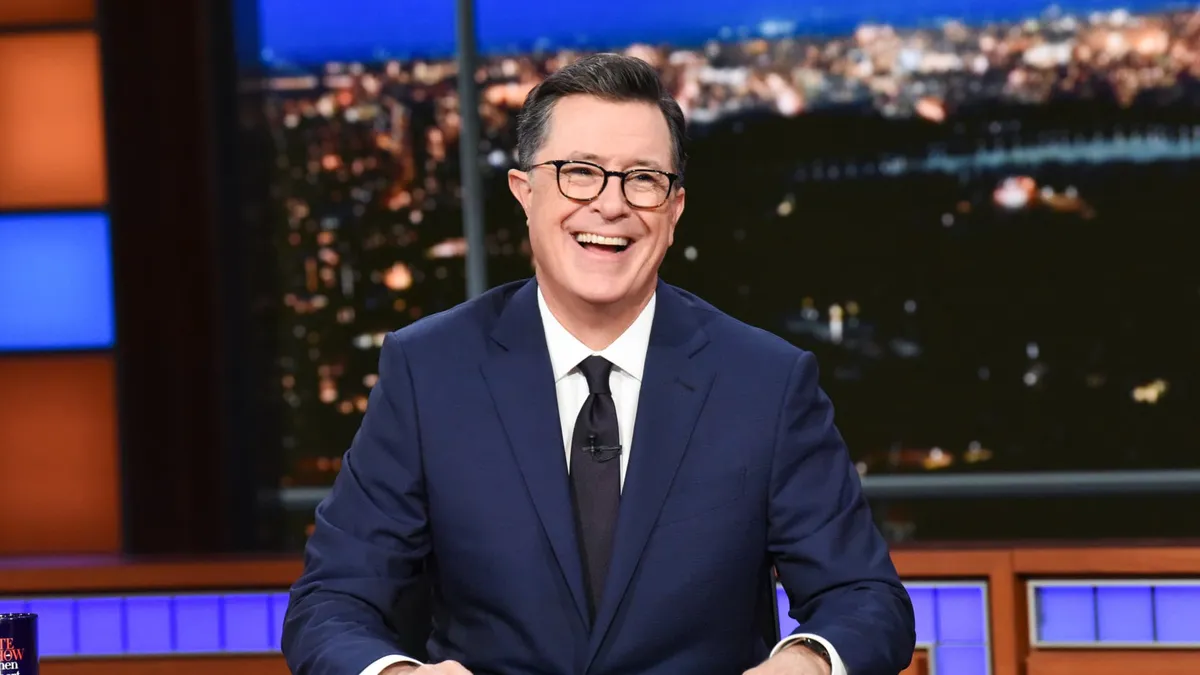
On Thursday night, Stephen Colbert, the popular late-night television host, passionately defended fellow host Jimmy Kimmel during a segment of his show, The Late Show with Stephen Colbert. Colbert openly criticized former President Donald Trump, labeling him an autocrat in light of Kimmel's recent suspension by ABC. This controversy erupted after Kimmel made comments linking the alleged perpetrator of a crime against conservative activist Charlie Kirk to Trump's MAGA movement.
ABC, a subsidiary of Disney, announced the indefinite suspension of Jimmy Kimmel Live! just a day before Colbert's remarks, triggering significant backlash. Kimmel's comments had sparked outrage, prompting the network to take drastic action. In response, Trump praised Kimmel's suspension and hinted that the Federal Communications Commission (FCC) might consider revoking licenses of television networks that oppose him, further intensifying the debate on censorship in entertainment.
During the taping of his CBS show in New York City, Colbert stated, "With an autocrat, you cannot give an inch," emphasizing his unwavering support for Kimmel and his team. Colbert dedicated the entire episode to championing free speech and standing in solidarity with Kimmel's staff, who found themselves at the center of this heated controversy.
Adding to the chorus of support for Kimmel, late-night legend David Letterman criticized ABC's decision as "ridiculous." Speaking at The Atlantic Festival in New York, he expressed concern about the implications of firing individuals out of fear of authoritarianism. Letterman remarked, "You can't go around firing somebody because you're fearful or trying to suck up to an authoritarian criminal administration in the Oval Office." His comments highlight the growing unease regarding the influence of political pressures on media corporations.
Letterman also drew parallels between Kimmel's suspension and CBS's previous decision to cancel Colbert's show, which raised eyebrows amidst political tensions. He noted that CBS's actions appeared to align with corporate interests rather than artistic integrity, suggesting that the network was attempting to avoid troubling Trump. "They took care of Colbert," Letterman stated, criticizing the manipulation at play in the industry.
In an interesting twist, another late-night icon, Jon Stewart, announced his plans to host an episode of The Daily Show on Thursday, a departure from his usual Monday-only hosting schedule. Stewart is expected to interview Nobel Peace Prize winner Maria Ressa, author of "How to Stand Up to a Dictator," further emphasizing the theme of resilience against censorship and political intimidation.
Trump took to social media to celebrate Kimmel's suspension, claiming victory for ABC's decision and asserting that Kimmel had "ZERO talent." He encouraged NBC to follow suit, suggesting that it should cancel shows like The Tonight Show Starring Jimmy Fallon and Late Night with Seth Meyers. Furthermore, Trump hinted at potential FCC actions against networks that oppose him, raising alarms about government overreach into media.
Former Vice President Kamala Harris also weighed in on the situation, decrying it as an "outright abuse of power." In a tweet, she stated that the current administration is attacking critics and using fear as a weapon to silence dissenting voices. She urged the public not to remain silent in the face of what she called a "frontal assault on free speech," reflecting a broader concern about the state of democracy and the media landscape.
The unfolding drama surrounding Jimmy Kimmel's suspension has ignited a critical conversation about free speech and the pressures exerted by political figures on media outlets. With prominent figures like Stephen Colbert and David Letterman rallying in support of Kimmel, the late-night television landscape is witnessing a pivotal moment. As viewers and fans alike grapple with these issues, the importance of maintaining a platform for diverse voices and opinions in media remains paramount.